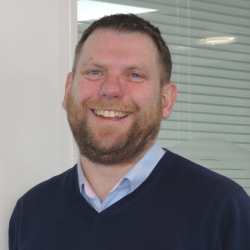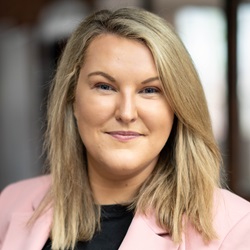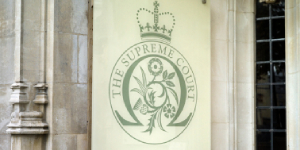
Miami: Yacht was docked in 2017
Top family law firm Payne Hicks Beach (PHB) would be prejudiced by a split trial in the negligence action brought by the woman who secured the UK’s largest ever divorce award, the High Court has ruled.
Master Kaye said a split trial could mean Tatiana Soroka’s case, which concerns events from January 2017, would not conclude until 2028 or 2029, rather than 2026 as currently scheduled.
“The strain and inconvenience and impact on all the witnesses is a factor that militates against a split trial,” she said.
“But I also take into account that it will leave the claim hanging over the individuals within PHB for some years. It is not their choice to delay matters. They oppose the split.”
The prejudice to PHB was one of several factors that led the judge to reject Ms Soroka’s application.
As Tatiana Akhmedova, she was advised by PHB in obtaining a financial remedy order (FRO) in 2016 that required her ex-husband, Russian businessman Farkhad Akhmedov, to pay her £350m.
Mr Akhmedov did not willingly comply and Ms Soroka sought enforcement in various jurisdictions, backed by litigation funding. Eventually, in July 2021, the pair agreed a settlement.
Her claim concerns a period in early 2017 when a $200m superyacht, that was said to be an asset of Mr Akhmedov, the Luna, was docked in Miami.
Ms Soroka alleges that PHB was negligent in failing to advise her that she could and should take steps to enforce the FRO against the Luna at that time.
She pleads that she spoke to PHB to inform her lawyers that the Luna was in Miami and that she wanted to explore the options.
Had this happened, she says, she would have achieved an earlier and/or better settlement, and/or would not have incurred the same level of costs that she did by the time she reached the settlement.
PHB, however, says Ms Soroka gave express instructions that she was not interested in impounding the Luna. It says she only instructed PHB to obtain advice about the possibility of arresting Mr Akhmedov in Miami.
It says a Miami attorney advised that this was not an option, but they could seek to enforce the FRO in Florida if Mr Akhmedov had assets there. PHB confirmed that he did not.
Master Kaye explained that she was “far from persuaded that there is a clear clean and bright line between breach, duty, causation and loss in this case”.
But even if there were, multiple factors to weigh against a split trial from a case management perspective.
“The only real costs saving would be if there were a clean split and the claimant were to fail on breach and duty,” she said.
“If, as the claimant hopes, she is successful on breach and duty there would be no obvious costs saving at all. The assumption of an early settlement after a decision on breach and duty appeared to me to be misplaced without work and costs having been incurred in relation to causation and loss as set out above.
“A split trial will cause delay to both the eventual determination of the claim and when it might be possible for the parties to engage in any sensible form of ADR.
“Inevitably that too will increase costs even if the full costs of a second trial are avoided. Progressing the full claim now including issues of causation and loss is more likely to lead to an earlier overall settlement.”
The judge said she had “real concerns” about the need for the witnesses to give evidence twice, possibly 18 months apart – not just for “the strain and inconvenience” caused but also “the fairness of the trial process and the reliability of that evidence”.
There was also “a real risk” that any trial on breach and duty would result in an appeal, delaying the second trial by a year or more.
“Given the scope of the witness evidence and the historic nature of the underlying events the risk of further delay beyond even 2028 would be a further factor against a split trial.
“A single trial in late 2026 even if there were then an appeal would mean that all the witnesses would have given all of their evidence by then. That has to be preferable to having to revisit the events of 2017 in 2028 or 2029.”












Leave a Comment